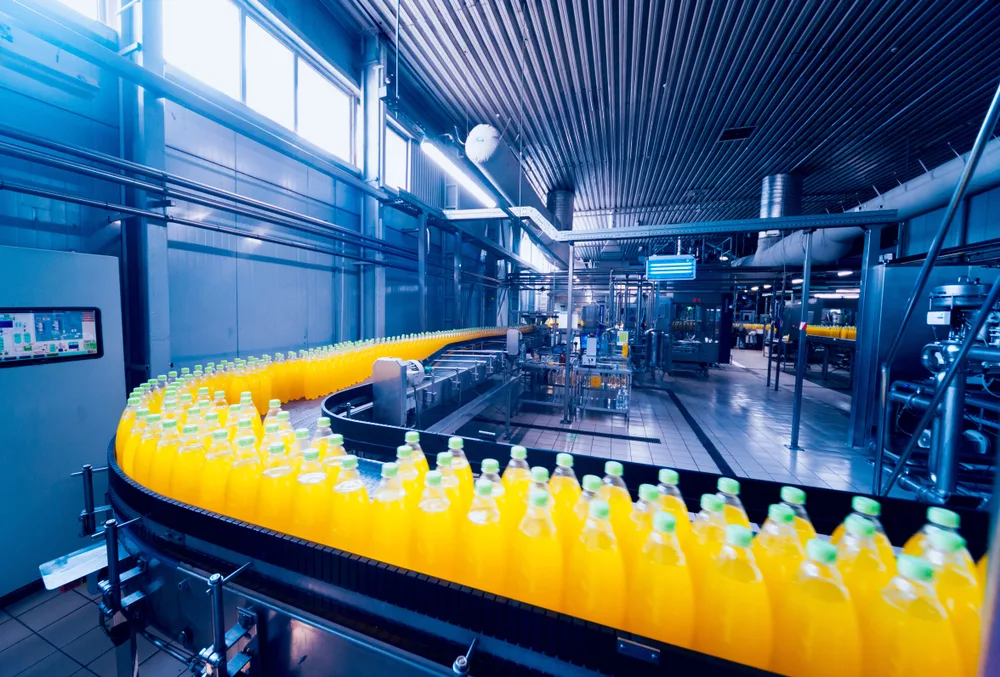In an era marked by fluctuating energy prices and growing environmental concerns, the food and beverages industry faces a unique set of challenges. Among these, the rising energy costs have emerged as a significant hurdle. However, innovative solutions such as cogeneration and steam turbines are proving to be game-changers, enabling companies in this sector to not only tackle the energy price challenge but also enhance their sustainability efforts.
The Energy Price Challenge in the Food and Beverages Industry:
The food and beverages industry is energy-intensive, relying heavily on various processes, including heating, cooling, and packaging. With energy costs being a major operational expense, the industry is particularly vulnerable to fluctuations in energy prices. As traditional energy sources become scarcer and more expensive, companies must explore alternative methods to secure a reliable and cost-effective energy supply.
Cogeneration: A Powerful Solution:
Cogeneration, also known as Combined Heat and Power (CHP), is a forward-thinking approach that holds immense potential for the food and beverages industry. This technology involves the simultaneous production of electricity and useful heat from a single energy source, often natural gas. By harnessing both electricity and thermal energy, cogeneration systems significantly increase overall energy efficiency compared to conventional methods.
Advantages of Cogeneration in the Food and Beverages Industry:
- Enhanced Efficiency: Cogeneration systems can achieve efficiency levels of up to 80%, far surpassing traditional power generation methods.
- Cost Savings: By generating their own electricity and heat, companies can reduce their reliance on the grid and potentially cut energy costs.
- Environmental Benefits: Cogeneration leads to lower greenhouse gas emissions, aligning with sustainability goals and regulatory requirements.
- Reliable Power Supply: In the event of grid outages, cogeneration systems can provide a reliable backup power source, ensuring uninterrupted operations.
Steam Turbines: Driving Energy Transformation:
Steam turbines have been a staple in power generation for decades, and their application in the food and beverages industry is proving transformative. These turbines utilize steam, often generated through cogeneration, to drive a generator and produce electricity. By utilizing the steam produced during various processes, such as cooking or sterilization, companies can harness otherwise wasted energy to generate power.
Turtle Turbines being front runner in providing solutions using Steam Turbine Generators, MiniCOGEN plants, suitable for Food and Beverage Industry to generate their own power and heat.
Key Benefits of Steam Turbines:
- Waste Heat Recovery: Steam turbines enable the efficient recovery of waste heat, maximizing energy utilization and reducing operational waste.
- Customizable Sizing: Steam turbine systems can be tailored to fit the specific energy needs of each facility, ensuring optimal performance.
- Scalability: As companies expand, steam turbine systems can easily be scaled up to accommodate increased energy demands.
- Reduced Carbon Footprint: By utilizing steam turbines for power generation, companies contribute to a lower carbon footprint and reduced reliance on fossil fuels.
Conclusion:
In an industry where energy costs and sustainability are of paramount importance, embracing innovative solutions like cogeneration and steam turbines can yield substantial benefits for the food and beverages sector. By effectively addressing the energy price challenge, companies not only secure a competitive edge but also contribute to a more sustainable future. As technology continues to advance, the marriage of cogeneration and steam turbines holds the promise of revolutionizing the way energy is sourced and utilized in this vital industry.
Turtle Turbines is one of the most reputed Steam Turbine Manufacturers In India. For more information visit now https://turtleturbines.com


